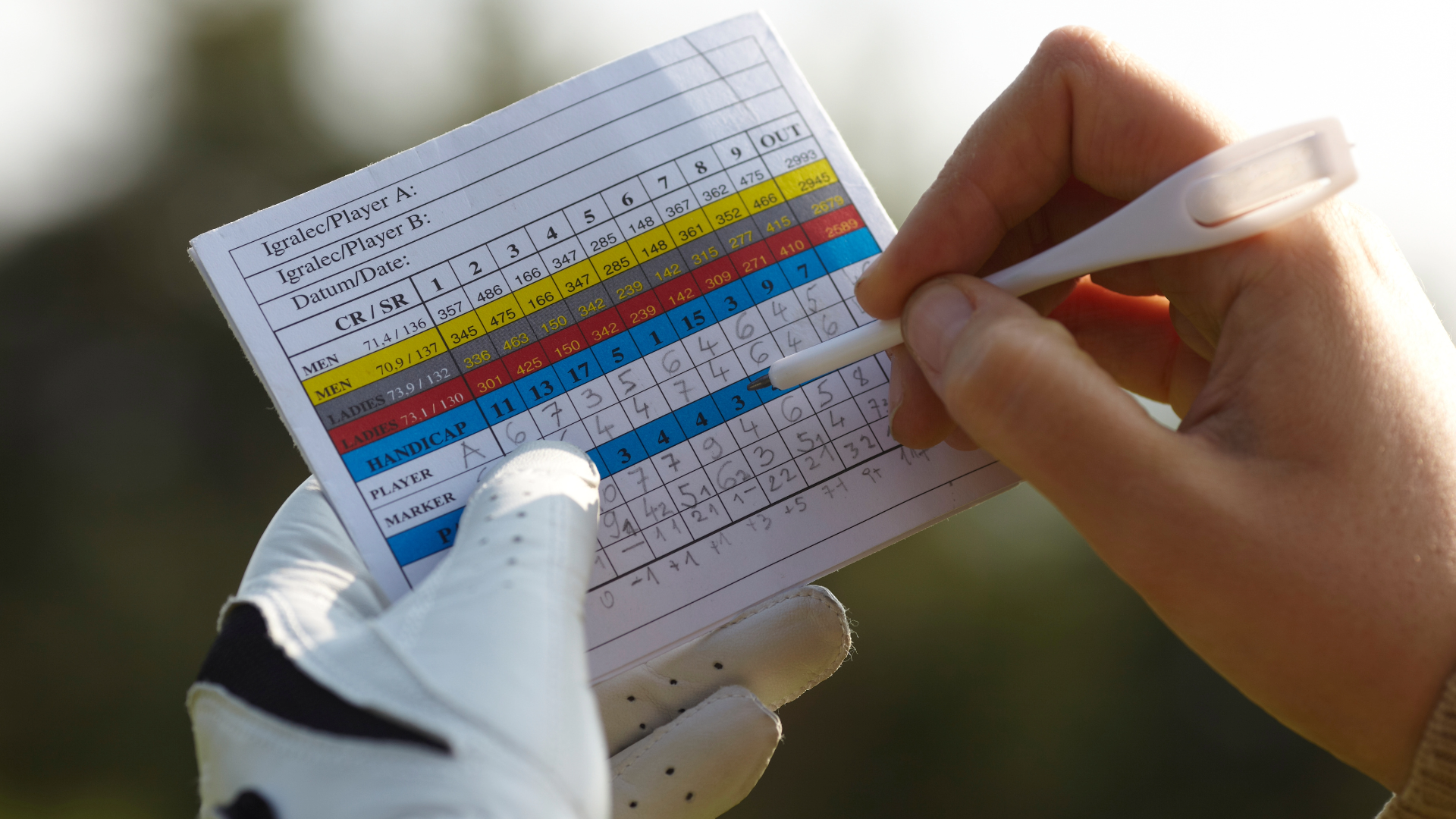
Did you know that Jack Nicklaus said golf is 90% mental and only 10% physical?
Golf is more of a mental game than other sports, yet few players ever try to improve their mindset. Instead, most golfers focus on mechanics and equipment to play better, but when used properly your mind is a secret weapon on the course.
Golf psychology is a relatively new concept and was made popular by sports psychologist Dr. Bob Rotella. His mental golf books helped change the way players – both amateurs and professionals – approach the mental game.
Now, it’s common for professional golfers to have a swing coach and sports psychologist as part of their team. Even as an amateur golfer, there is a lot you can do to improve your mindset and play your best golf.
Keep reading to learn more about the mental game to reach peak performance on the course.
How to Master the Mental Golf Game
Mental preparation is one of the most underutilized tools that every golfer can apply.
“The mind is your greatest weapon. It’s the greatest club in your bag. It’s also your Achilles’ heel.” – Steve Elkington
Whether you’re an amateur golfer or a professional playing for millions of dollars, the mental game is incredibly important.
So, why is the mental game so important in golf?
Well, a few reasons. First, golf takes a long time to play 18 holes which is a lot of time for your mind to wander. It’s also a very individualistic sport where everything that happens is 100% on you. Not to mention you must battle the conditions, golf course, and fellow competitors.
Which begs the question, how do you work on the mental part of golf?
There are so many parts of the mental game including breathing exercises, developing a pre-shot routine, improved body language, self-talk, and overall attitude. Pick an area that you think is holding you back the most and address it first. Once fixed, work on other issues so you can become unstoppable on the course.
Here are seven golf tips to help you master the mental side of the game.
1. Master Self-Talk
There’s a lot you can’t control during a round of golf including weather, bad breaks, and your competition. But there is one thing that you can control regardless of the course, weather, or swing… your self-talk.
When left unchecked, your self-talk can sabotage your round and take the fun out of the game. Here’s what Dr. Alison Curdit recommended in a Golf.com article to improve your self-talk.
“The first step to managing automatic thoughts is to notice them. Are you listening? Do you hear what those thoughts are telling you? In your next round, jot down in a notebook or on your scorecard each time you have a reaction to a shot that includes negative commentary.”
Once you become aware of any negative language patterns, then you can create a plan to replace them with empowering statements. Your mind is always listening to what you are saying so make sure it’s positive and helping your game.
2. Body Language
Self-talk is one of the first things to look at but so is your body language. Your body sends direct signals to your mind – both good and bad – so make sure it’s helping your game. Amy Cuddy’s TED Talk, “Your Body Language Shapes Who You Are” discussed its importance in Golf Digest.
“People tend to think body language is about communicating with others, not with the self. Body language is really about what your body is saying to you, not what you’re saying to other people. When you use your body to respond to situations, especially stressful situations, in a powerful way, it becomes self-reinforcing.”
Move with purpose and intention to send positive signals to your mind. You’ll likely notice a more optimistic attitude, improved concentration, and better focus during the round. These are all keys to reaching the “zone” and playing up to your potential.
3. Learn When to Focus
One of the biggest mistakes most amateur golfers make is thinking they need to focus non-stop for 18 holes. While it sounds good in theory, 4–5 hours of complete focus is mentally exhausting and typically leads to fatigue on the back nine.
Instead, you need to learn when to focus and when to relax on the golf course; this is referred to as narrow and wide focus.
Narrow focus refers to the ability to concentrate when you get to the tee box or golf ball. This is the time to figure out the yardage, which club to use, desired shot shape, and target.
Wide focus refers to not thinking about your round and giving your mind time to recharge. Professional golfers do this with their caddies by talking about other topics; news, the latest NFL game, family, etc.
Doing this allows your mind to be refreshed when you get to the ball. This is the easiest way to improve your golf concentration. Remember that less is more when it comes to staying focused and present during the round.
4. Develop a Pre-Shot Routine
All great golfers have one thing in common and shocker, it has nothing to do with their swing. They all have a consistent set of rituals, or a “pre-shot routine” before every shot.
As Helen Alfredsson, author of A Good Swing is Hard to Find, said, “A pre-shot routine helps you build a cocoon around yourself. This is the mysterious zone that athletes refer to longingly. But there’s nothing mysterious about it.”
If you don’t have a pre-shot routine yet, create one as soon as possible as it will help you:
- Commit to a target.
- Prepare for the shot.
- Improve pace of play.
- Deal with pressure and nerves.
The final part of a good routine is to have some sort of post-shot routine. This is how you can accept the shot – whether it’s good or bad – and focus on the next shot.
Having a physical trigger to accept the shot is also a great idea. This might include removing your glove or putting the club back in your bag. Once that trigger takes place, accept the shot and move on.
5. Visualize Your Success
Another mental golf tip used by golfers and other professional athletes is visualization.
As five-time major winner Phil Mickelson said, “The difference between the number one guy and 50th guy on tour, let’s say, a lot of it has to do with his ability to visualize and see shots before it happens.”
Even if you’re not playing professional golf, visualization is a powerful tool to improve your game. Here are two ways to reap the rewards of visualization:
- During your pre-shot routine give your mind a clear picture of the target and desired shot shape. Try to imagine a shot tracer like on TV as you take your practice swings.
- Off the course spend a few minutes imagining yourself breaking through plateaus and hitting great shots under pressure. Mental rehearsal can prime your mind to execute on the course and help you hit more clutch shots.
6. Breathe Through Bad Shots
Let’s face it, golf is a frustrating game at times and easy to let your emotions get the best of you. When this happens it’s common to change your breathing patterns and put your brain in fight or flight mode.
Luckily, as a human you do have the ability to gain conscious control of your breathing, which can directly impact your golf game.
Just like self-talk and body language, make sure to monitor your breathing between shots – especially after the bad ones. Keep breathing, in and out, to stay relaxed and focused during the round.
7. Enjoy The Game
The final way to master the mental game is to simply have more fun. Don’t forget, golf is a game – it’s not life or death.
Yet, so many weekend warriors expect themselves to hit perfect shots every round – even if they don’t play or practice regularly. Ironically, even the best players hit bad shots all the time, so why shouldn’t you?
When you take the game less seriously and remove expectations it will help you stay relaxed. Playing golf in this calm, cool state will lead to better performance and a lot more fun.

Competitive and Tournament Golf Preparation
Mental preparation is key in tournaments as they’re very different from a casual round of golf with your friends. In a tournament you’re paired with new players, play in more difficult conditions, and have to abide by the rules of golf.
To mentally prepare for competition make sure to play a practice round, buy a yardage book, create a strategy for each hole, and have a solid warm up routine. Paired with the tips above you’ll have a ton of confidence in competition.
Doing research on the location, weather and competitors may also give you an edge up!
Above all, enjoy the game
When you learn to use these mental golf tips consistently you can get in the zone and play your best golf. Don’t let your mind limit your performance on the golf course.
If you’d like even more coaching, make sure to check out Scratch Club. This all-access pass gives you advanced training from top instructors in all areas of the game – including mental game with the incredible Dr. Deborah Graham, a Golf Digest top 10 ranked psychologist and founder of the GolfPsych Mental Game Training System.

